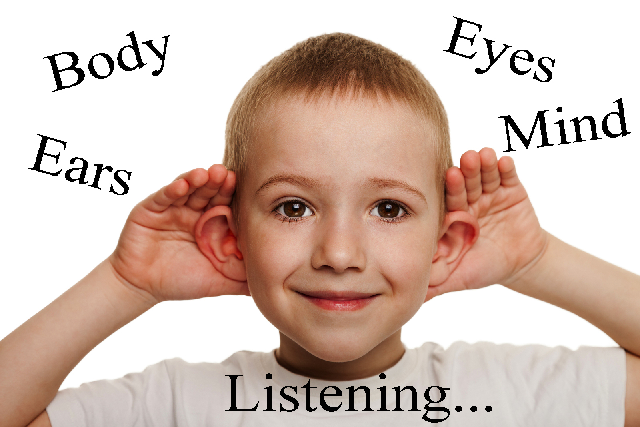1) How to understand and research the topic?
Understanding and researching a topic effectively involves several steps, from initial comprehension to deep exploration. Here’s a structured approach to guide you:

1. Initial Understanding
a. Define the Topic: Clearly articulate what the topic is about. Write down the main question or thesis statement.
b. Background Reading: Start with general sources like encyclopedias (Wikipedia, Britannica) to get an overview.
Identify key concepts, terms, and related subtopics.
2. Gather Information
a. Identify Reliable Sources: Academic journals, books, and reputable websites.
Government and educational institution websites.
b. Use Library Resources: Access academic databases like JSTOR, PubMed, Google Scholar, etc.
Consult librarians for resource recommendations.
c. Online Research: Use advanced search techniques to find specific information.
Verify the credibility of online sources by checking author credentials and publication reputation.
3. Deep Exploration
a. Read and Annotate: Read materials critically, making notes and highlighting important points.
Identify the arguments, evidence, and methodologies used.
b. Synthesize Information: Compare different sources and viewpoints.
Look for patterns, contradictions, and gaps in the information.
c. Organize Findings: Create outlines or mind maps to structure your understanding.
Group related ideas and note how they connect to your main topic.
4. Analysis and Critical Thinking
a. Evaluate Arguments: Assess the strengths and weaknesses of different arguments.
Consider the validity, reliability, and bias of the sources.
b. Develop Your Perspective: Formulate your own opinion or thesis based on the evidence.
Be prepared to revise your perspective as you uncover more information.
5. Writing and Presentation
a. Drafting: Write a clear introduction stating your thesis or main question.
Develop body paragraphs that present evidence and analysis logically.
Conclude by summarizing your findings and stating the implications.
b. Cite Sources: Use proper citation styles to credit your sources.
Include a bibliography or works cited page.
2) What are the methods of preparation of a public speech?
Preparing a public speech involves several steps to ensure the speech is well-organized, engaging, and effectively delivered. Here are the key methods:

1. Understand Your Audience
Research Your Audience: Know the demographics, interests, and knowledge level of your audience.
Tailor Your Message: Adjust the content and language of your speech to suit the audience’s preferences and expectations.
2. Define the Purpose
Clarify the Objective: Determine whether your speech is meant to inform, persuade, entertain, or motivate.
Set Goals: Establish specific goals you want to achieve with your speech.
3. Conduct Research
Gather Information: Collect relevant facts, statistics, anecdotes, and examples to support your points.
Verify Sources: Ensure the information comes from credible and reliable sources.
4. Organize Your Content
Create an Outline: Structure your speech with an introduction, body, and conclusion.
Introduction: Grab attention with a strong opening, such as a quote, question, or story. Introduce your main points.
Body: Develop your main points with evidence and examples. Ensure logical flow and clear transitions between points.
Conclusion: Summarize the main points and end with a memorable closing statement.
5. Write the Speech
Draft the Speech: Write the full text based on your outline, paying attention to language, tone, and style.
Edit and Revise: Refine the draft to improve clarity, coherence, and impact. Remove any unnecessary content.
6. Practice Delivery
Rehearse Aloud: Practice delivering the speech multiple times to get comfortable with the content and timing.
Use a Mirror or Record Yourself: Observe your body language and facial expressions. Adjust for natural and engaging delivery.
Seek Feedback: Present your speech to a friend or family member and ask for constructive feedback.
4) How to take care of your body language while making a speech to a large audience?
Taking care of your body language while making a speech to a large audience is crucial for effective communication. Here are some key tips:

1. Maintain Good Posture
Stand Tall: Keep your back straight, shoulders back, and head held high. This conveys confidence and authority.
Balanced Stance: Stand with your feet shoulder-width apart to appear grounded and stable.
2. Use Hand Gestures Purposefully
Emphasize Points: Use hand movements to underscore important points. For example, open palms can suggest openness and honesty.
Avoid Overuse: Too many gestures can be distracting. Aim for natural movements that complement your words.
3. Facial Expressions
Be Expressive: Use your face to convey emotions appropriate to your speech. Smiling can help establish a connection, while a serious expression can underscore important points.
Avoid Tension: Relax your facial muscles to avoid looking tense or nervous.
4. Eye Contact
Engage with the Audience: Make eye contact with different parts of the audience to create a sense of connection. Avoid focusing on a single spot or person. Practice the “Z” Pattern: Move your gaze in a “Z” pattern across the audience to ensure everyone feels included.
5. Movement and Space
Purposeful Movement: Move around the stage or space if possible, but do so purposefully. Avoid pacing or shifting nervously.
5) How to engage your audience and ensure that they are fully attentive?
Engaging an audience and ensuring their full attention requires a combination of strategies that appeal to their interests, maintain their focus, and encourage interaction. Here are some effective methods to achieve this:

1. Understand Your Audience
Know Their Interests: Tailor your content to the interests and needs of your audience. Research their demographics, preferences, and pain points.
Set Clear Objectives: Clearly define what you want your audience to take away from your presentation or content.
2. Start Strong
Captivating Opening: Begin with a compelling story, an interesting fact, or a thought-provoking question to grab attention immediately.
Visual Impact: Use visually appealing slides, props, or multimedia to create a strong initial impression.
3. Use Engaging Content
Tell Stories: People are naturally drawn to stories. Use anecdotes and real-life examples to illustrate your points.
Incorporate Multimedia: Use videos, images, and graphics to make your content more dynamic and visually stimulating.
Interactive Elements: Include polls, quizzes, or live demonstrations to keep the audience involved.
4. Vary Your Delivery
Change Your Tone and Pace: Avoid monotony by varying your tone, volume, and speaking pace to maintain interest.
Body Language: Use expressive body language and eye contact to convey enthusiasm and connect with your audience.
Movement: Move around the stage or room to engage different parts of the audience and create a more dynamic presence.
5. Encourage Participation
Ask Questions: Pose questions to the audience to encourage them to think and respond.
Interactive Activities: Incorporate activities like group discussions, brainstorming sessions, or hands-on exercises.
Feedback Opportunities: Provide opportunities for the audience to ask questions or provide feedback during and after the presentation.
Thanks for reading.




